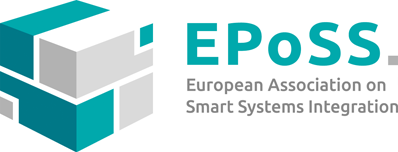Six research projects selected to compete for two top spots in the area of research into future and emerging technologies (FET) have been announced by the European Commission at the FET11 conference and exhibition in Budapest. The six contenders will receive around €1.5 million each to refine their proposal for one year, after which only two will be selected.
The aim of these flagship initiatives will be to deliver major breakthroughs in information and communication technologies (ICT), with the potential to provide solutions to some of society's biggest challenges. The two initiatives selected for long-term funding will run for 10 years, each with a total budget of up to €100 million per year.
Neelie Kroes, European Commission Vice-President for the Digital Agenda, said: "The finalists announced today (4th May) will plant the seeds for tomorrow's innovation. Europe hosts some of the world's leading researchers in the fascinating and highly inspiring area of future and emerging technologies. By joining forces to address grand challenges, European, national and regional funding can lead to innovations that will tackle problems like neuro-degenerative diseases and climate change."
The finalists are (in alphabetical order):
-
FuturICT Knowledge Accelerator and Crisis-Relief System: ICT can analyse vast amounts of data and complex situations so as to better predict natural disasters, or manage and respond to man-made disasters that cross national borders or continents.
-
Graphene Science and technology for ICT and beyond: Graphene is a new substance developed by atomic and molecular scale manipulation that could replace silicon as the wonder material of the 21st century.
-
Guardian Angels for a Smarter Life: tiny devices without batteries that act like autonomous personal assistants, and which can sense, compute and communicate potentially even while travelling through your bloodstream.
-
The Human Brain Project: understanding the way in which the human brain works can bring the benefits of brain-related or brain-inspired developments to computing architectures, neuroscience and medicine.
-
IT Future of Medicine:digital technology has the power to deliver individualised medicine, based on molecular, physiological and anatomical data collected from individual patients and processed on the basis of globally integrated medical knowledge.
-
Robot Companions for Citizens: soft skinned and intelligent robots have highly developed perceptive, cognitive and emotional skills, and can help people, radically changing the way humans interact with machines.
To break new ground, FET Flagship contenders will have to look beyond traditional ICT research and link up with specialists in other fields like health-, material- and neuro-sciences and neuro-robotics.
Successfully tackling such fundamental research challenges will only be possible through the combined efforts of top scientists from all over Europe. Most of the proposals announced today are backed by many companies and research funding agencies and hundreds of scientists.
They will also need the combined resources of the EU's Research Framework Programme, national and regional research programmes and industry. By comparison, an earlier initiative to fully map the human genome involved hundreds of scientists across the globe and cost more than US$ 3 billion (roughly €2.1 billion) over 13 years. FET flagship projects face similarly huge challenges, with equally impressive potential benefits.
Share on
